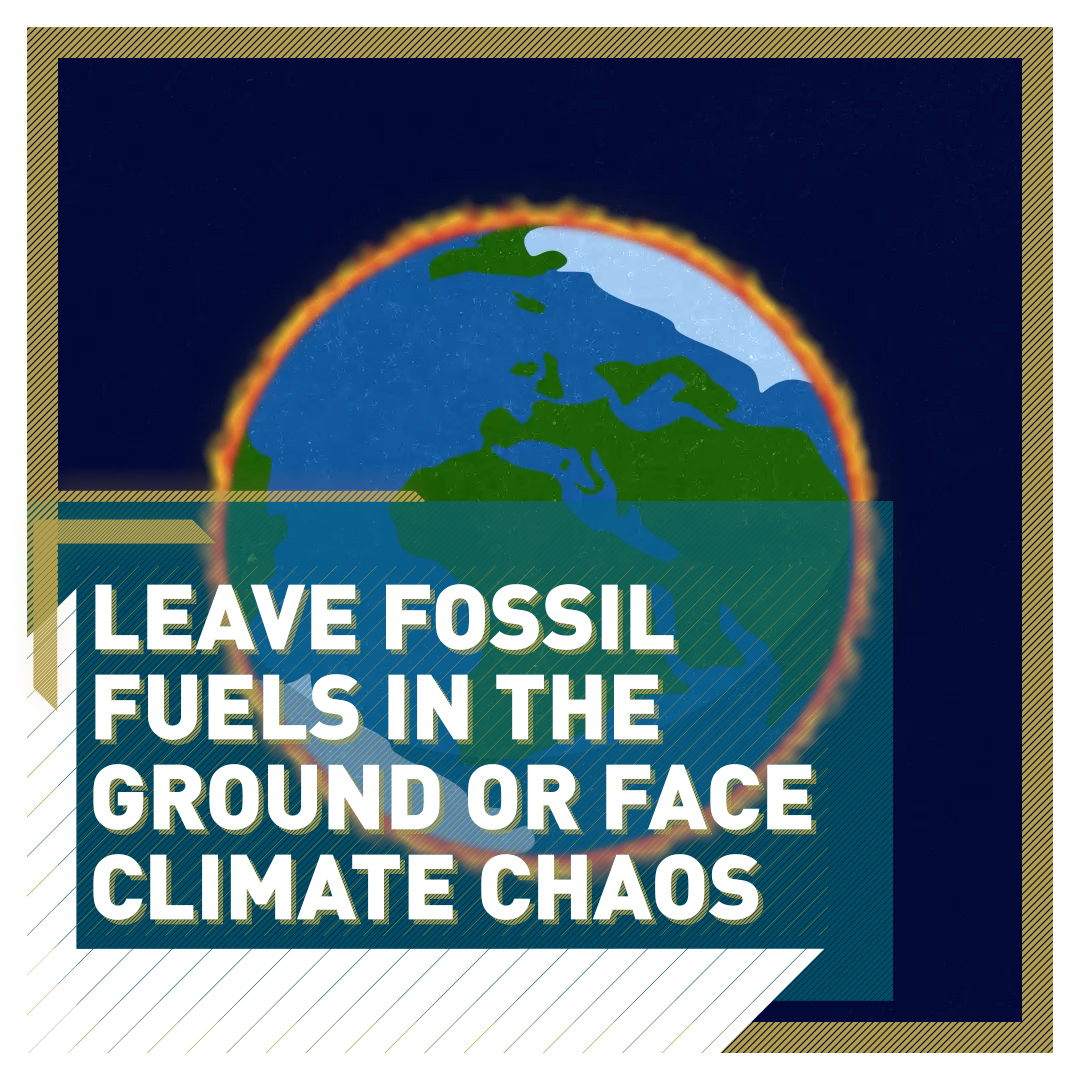
A flare burns natural gas at an oil well – but we may have to stop digging up fossil fuels to hit Paris Agreement targets. /Matthew Brown/AP Photo
A flare burns natural gas at an oil well – but we may have to stop digging up fossil fuels to hit Paris Agreement targets. /Matthew Brown/AP Photo
The overwhelming majority of fossil-fuel reserves must stay in the ground or the planet's climate crisis will accelerate, according to a new study by researchers at University College London.
Analysis suggests that even to stand a 50-50 chance of keeping global heating below 1.5 degrees Celsius – the growth-figure target enshrined in the Paris Agreement – countries and companies would need to leave 90 percent of coal reserves and 60 percent of oil and gas untouched.
To increase the chances of avoiding climate catastrophe, reductions would need to be even steeper, leaving trillions of dollars of mineral wealth untapped – with inevitable economic effects on companies and countries invested in fossil-fuel extraction.
READ MORE
Raducanu breaks U.S. Open records
Auto show focuses on electric future
Merkel confirms 'I am a feminist'
Calling the future "bleak" and the situation "absolutely desperate," the authors say the report "implies that many operational and planned fossil fuel projects [are] unviable."
Analyzing via geographical region, the report – published in Nature – says Europe would have to keep 90 percent of its coal, 72 percent of its oil and 43 of its gas in the ground. Other areas would face even more stringent restrictions.
Russia and the former Soviet states would be required to leave 97 percent of their coal reserves, as would the U.S., while Australia would forgo 95 percent. Oil-rich Canada would have to leave 83 percent of its black gold underground, along with 83 percent of its coal and 81 percent of its gas.
01:51

The report pleads for "countries that are fiscally reliant on fossil fuels" to urgently reassess their production, warning of "huge transition risk unless economies diversify rapidly."
It cites the example that Middle Eastern oil production "needs to peak in 2020, which in combination with lower oil prices from demand destruction signifies large reductions in fiscal revenue, with Iraq, Bahrain, Saudi Arabia and Kuwait relying on fossil fuels for 65 to 85 percent of total government revenues at present."
Rhetoric and reality
The findings chime with an International Energy Agency (IEA) report published in May, which concluded that there could be no new fossil-fuel schemes if countries are to reach the goal of net-zero emissions by 2050.
But while scientific opinion continues to coalesce on the need to close the gap between rhetoric and reality, opposition is also hardening to the idea of production reduction in countries which rely heavily upon fossil fuels.
Only last week, Australia's resources minister Keith Pitt insisted that "Reports of coal's impending death are greatly exaggerated and its future is assured well beyond 2030," while Saudi Arabia's energy minister Prince Abdulaziz bin Salman called the IEA's report "a sequel of the La La Land movie."

